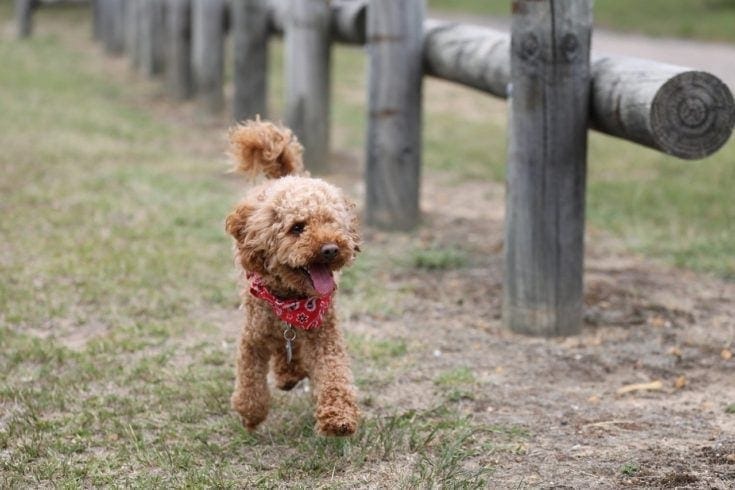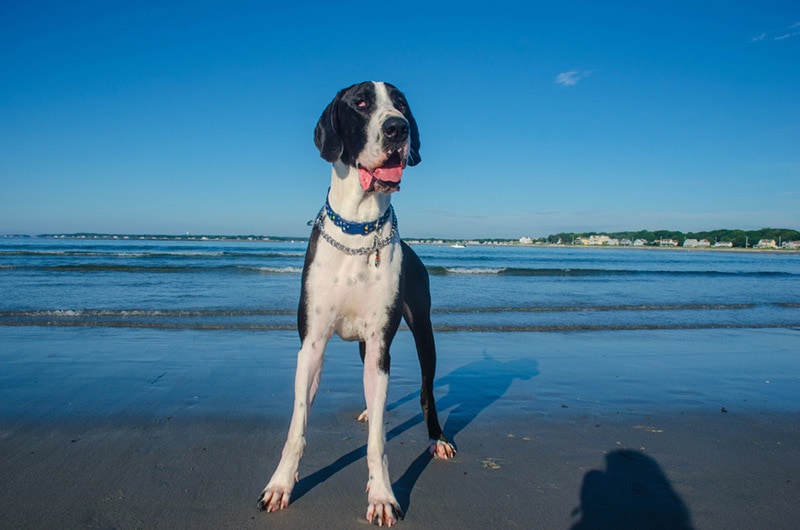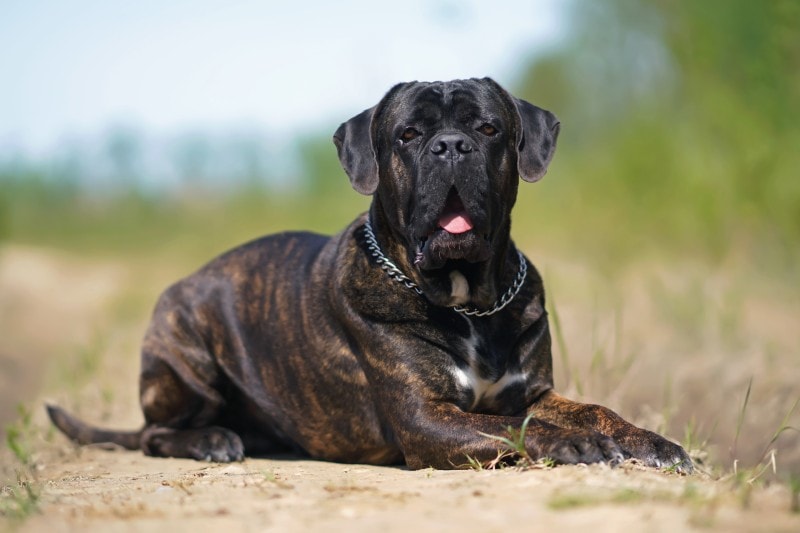How Aggressive Are Basset Hounds? Breed Temperament Explained

Updated on

Click to Skip Ahead
There are only so many times that you can scroll through pictures of adorable Basset Hounds before you want your own. But if you have children in the household, you might be wondering if this breed is considered aggressive. Fortunately, Basset Hounds are non-aggressive and well-known for their friendliness.
Favored as an excellent scent tracker and family dog, the Basset Hound is an adorably loving and loyal breed. They are friendly to a fault, and this guide will delve more into their temperament and whether they are an aggressive breed.
What Is the Temperament of a Basset Hound?
Bred to be hunting companions, Basset Hounds love to be around people and other dogs. Due to their need for a close working relationship with their pack mates, they were bred to be as friendly and pack oriented as possible.
This avoidance of aggressive tendencies is why the Basset Hound is a beloved family dog today. They can be stubborn when they smell something that they find more interesting than you, but they’re also incredibly docile. Their friendliness doesn’t make them one of the most demonstratively affectionate breeds, though, so they might not be prone to sitting on your lap, but they do have a strong sense of loyalty.
Overall, Basset Hounds are excellent trackers and brilliant family dogs. They get along well with children of all ages due to their placid nature.
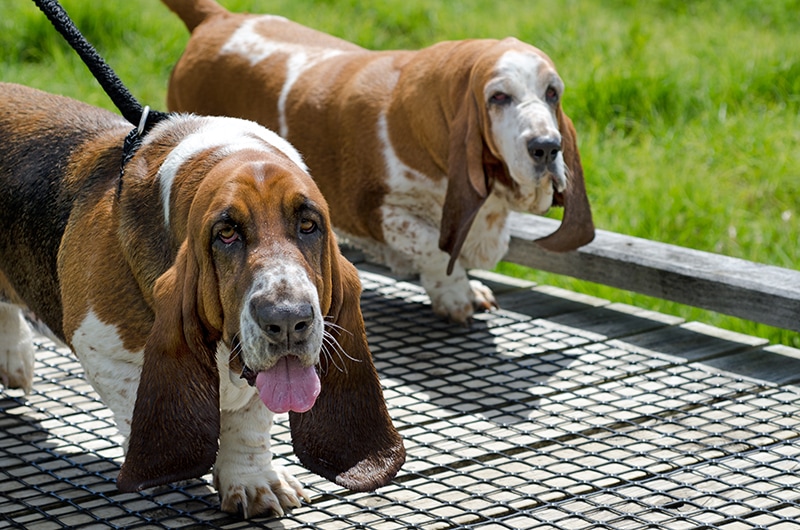
 The 6 Reasons Why Basset Hounds Can Be Aggressive
The 6 Reasons Why Basset Hounds Can Be Aggressive
Basset Hounds might be famously friendly, but this doesn’t mean they can’t be aggressive. It’s unlikely, but there are several situations where you might find a Basset Hound exhibiting this behavior. This doesn’t mean they’re an aggressive dog, but their behavior might need correcting before it becomes a more serious problem.
A few causes of problematic behavior, like aggression, in Basset Hounds are as follows1.
1. Minimal Socialization
Although they might be naturally friendly, Basset Hounds still need to be socialized when puppies. The more unfamiliar they are around people and other animals, the warier and more frightened they’ll be. If they get scared or feel trapped, they might use aggression to warn away someone they don’t want close.
2. Lack of Training
Basset Hounds adore their families and are eager to please, even if they can be stubborn. Unfortunately, that stubbornness puts off many new dog owners from training their Basset Hound properly. While this won’t always lead to an aggressive dog, without guidance, your Basset Hound will be more likely to develop unwanted behaviors.
Learn how to train your Basset Hound by taking obedience classes. You can also hire a professional trainer to help you.
3. Learned Aggression
They might be more likely to choose kisses over snarling, but Basset Hounds can still learn that a bad behavior is okay. In some cases, this can include aggression. If your puppy is shown through someone’s actions that aggression is the only way to get what they want, they’ll be more likely to try being aggressive to suit their purpose.
You also have to consider the history of your Basset Hound, especially if you got them when they were older. If they’ve experienced aggression toward them, they might be more likely to respond with the same behavior.
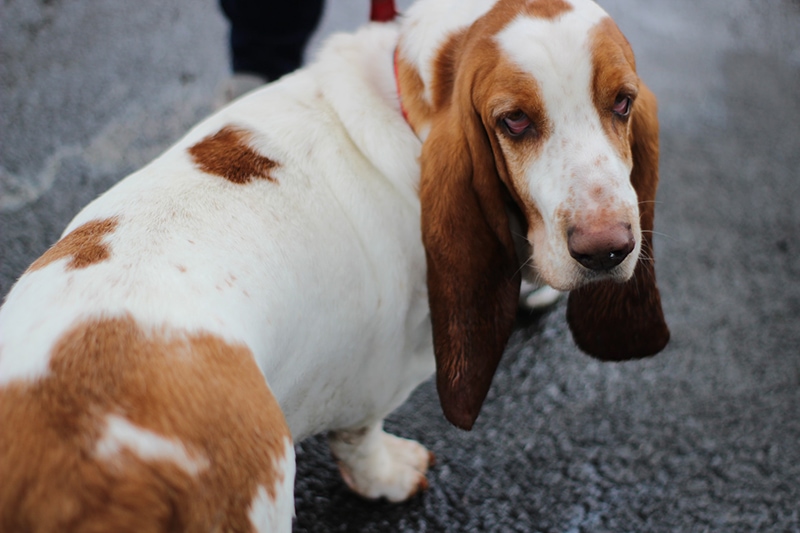
4. Reactive Behavior
Basset Hounds are, first and foremost, hunting dogs. They might be beloved family companions now, but they still have an ingrained hunting instinct. Your Basset Hound might show reactive behavior when they catch the scent of or see a small animal, as it might trigger their hunting instincts.
Reactive behavior is often confused with aggression and can lead to more severe behavior if it’s not corrected. If left to their own devices, your Basset Hound will follow their instincts to chase down prey. This behavior can lead to your dog or the other animal getting badly injured or worse.
Obedience training and socialization can help here. You’ll never train their hunting instincts out of them, but you can help them learn to control their impulses.
5. Health Problems
Basset Hounds are prone to a few health problems that can be uncomfortable for them. Ear infections due to trapped moisture in their droopy ears are among the most common.
If they’re in pain due to an infection or another health problem, your Basset Hound might be more defensive around you. It’s instinctive for dogs to protect themselves when they’re feeling unwell, and nipping at your hand if you touch a tender spot is their way of telling you that it hurts.
Since aggression isn’t a usual trait shown by Basset Hounds, you should consider the possibility that they’re in pain. Check in with your veterinarian to see if there’s anything serious going on with your Basset Hound and ensure that your dog gets the treatment that they need.
6. Frustration
Despite being an easy-going breed, Basset Hounds can get frustrated too. As a pack-oriented breed, they don’t like to be left alone for long periods and can get anxious or frustrated when they are. They need companionship in the form of another dog or you.
If they’re by themselves for too long, your Basset Hound can suffer from separation anxiety, which can lead to destructive or aggressive behavior.

 Are Basset Hounds Good Guard Dogs?
Are Basset Hounds Good Guard Dogs?
One reason that many people get dogs is to protect their homes from intruders. This is why breeds that look aggressive or have a bad reputation are often favored for work as guard dogs—or simply to scare people away.
That said, if you’re looking for a guardian for your home, the Basset Hound is one of the worst choices out there. They’re too docile, calm, and friendly to ever alert you to the presence of an unwanted guest or a stranger.
You’re unlikely to ever find a Basset Hound that would be willing to overlook making friends with someone new to defend their home. While they might delay an intruder with their interest, they’re not likely to scare them off altogether.
Conclusion
Most dog breeds don’t have a mean bone in them. The Basset Hound in particular is renowned for their placid, easy-going nature and friendliness toward everyone.
Of course, how a Basset Hound is raised can change their temperament, but overall, the breed isn’t prone to aggressive behavior. In fact, they’re notoriously bad watchdogs for this reason!
Featured Image Credit: Bill Anastasiou, Shutterstock

 The 6 Reasons Why Basset Hounds Can Be Aggressive
The 6 Reasons Why Basset Hounds Can Be Aggressive